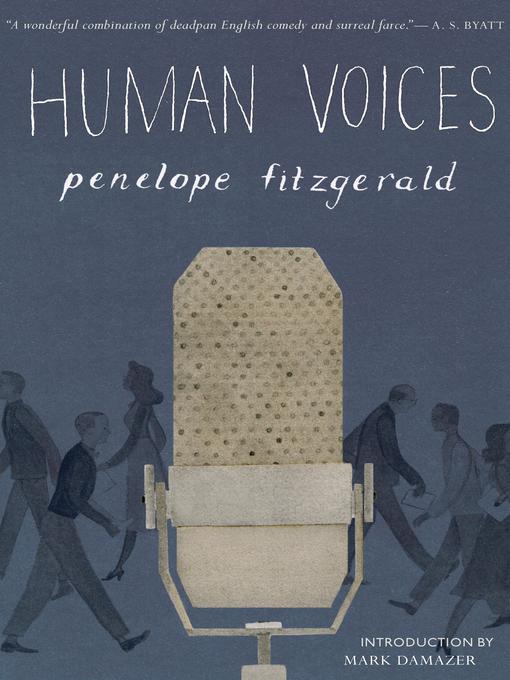
Human Voices
کتاب های مرتبط
- اطلاعات
- نقد و بررسی
- دیدگاه کاربران
نقد و بررسی

May 3, 1999
Now that Fitzgerald has widened her audience here--Blue Flower was published to rave reviews and the 1997 NBCC fiction award--Houghton Mifflin is releasing her early novels in paperback. This gracefully controlled and neatly inlaid chronicle of Britain during WWII, published in England in 1980, reflects the author's wartime experiences with the BBC. The beleaguered broadcasters she portrays have chosen truth over consolation; nevertheless they must try to keep their listeners and themselves from despair as the threat of a German invasion mounts and parachute bombs pit the streets. Yet Sam Brooks, RPD (Recorded Programmes Director), lives in a fantasy world of wax discs and nubile women. When he is not trying desperately to capture the sounds of England (spending hundreds of hours and pounds recording the creak of a country church door), Brooks is crying on the shoulder of one or another of his RPAs (Recorded Programmes Assistants), whose "firmness, and roundness, and readiness to be pleased" give him strength. His seraglio comprises Vi Simmons, cheery, practical, with a man at sea who means to marry her; part-French, pregnant, Lise Bernard, abandoned by her beau; Della, tarty, velvet-voiced, bound for defection to the drama department; and the latecomer, Annie Asra, whose uncompromising candor and fragile susceptibility to emotion reverberates as the real voice of Fitzgerald's book. Annie's fate is to fall in love with Brooks, whom she sees clearly as "a middle-aged man who said the same thing to all the girls" and who is, above all, self-centered, obsessed with his work and oblivious to what goes on around him. Fitzgerald conveys the peculiar intimacy and secrecy of wartime: people disappear from this strange little world very easily and almost without comment, yet, besieged as they are by the fear that England will soon go the way of occupied France, they cling to each other fiercely. Hopelessness is in the air, but, as the BBC employees stay up all night on the late shift, so are strains of Debussy, blunt confessions, murmured condolences and the wails of a baby born in the makeshift bunk room. Fitzgerald's clipped, unsentimental and yet sympathetic irony perfectly describes the moment when the British stiff upper lip begins to tremble in the face of overwhelming historical and emotional events.

Starred review from May 1, 1999
Fitzgerald follows The Blue Flower (LJ 3/1/97; 1997 National Book Critics Circle Award winner) with another entertaining short novel. This time her setting is 1940 at BBC headquarters in London, where the beleaguered Department of Recorded Programmes attempts to get news and music on the air amid German bombing attacks and internal chaos. War has transformed the BBC's famed London concert hall into a dorm, Red Cross training interrupts programming schedules, mix-ups are rife, and tempers are short. Particularly stressed are the teenage Junior Temporary Assistants, responsible for more than 5000 recordings weekly and struggling with personal problems inflamed by the war. Their should-be mentors, two self-absorbed departmental directors, are preoccupied with their own eccentricities and can scarcely deal with office glitches, much less the tragicomic complications arising when Annie, an intern of 16, falls in love with one of them. Fitzgerald, drawing on her own youthful employment at the BBC, brings time, place, and characters to life in a book remarkable for its dexterous and appealing prose. Recommended.--Starr E. Smith, Marymount Univ. Lib., Arlington, VA
Copyright 1999 Library Journal, LLC Used with permission.

























دیدگاه کاربران